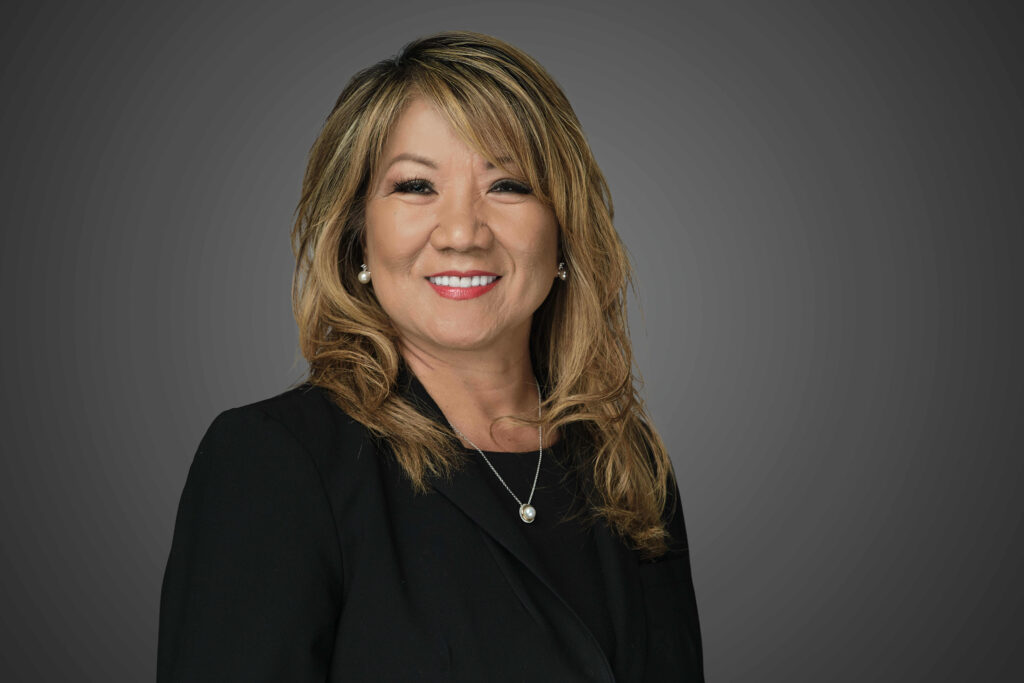Story by Lawson Martin. Photos provided by EMPOWER.
EMPOWER, a nonprofit collaborative spearheaded by Texas Family Initiative, is revolutionizing child welfare in the Dallas Metroplex and is offering personalized services and life skills training to prepare foster teens for adulthood.

EMPOWER is an organization led by Texas Family Initiative. This child welfare agency provides various community resources, such as foster and kinship care, adoption, counseling support and education, prevention services, and more. EMPOWER is a Community-Based Care (CBC) contractor serving a nine-county area throughout the Dallas Metroplex, including Dallas, Grayson, Fannin, Collin, Hunt, Rockwall, Kaufman, Ellis, and Navarro counties in North Texas.
The State of Texas recently awarded EMPOWER the CBC contract, allowing the initiative to start managing child placement services. EMPOWER will begin taking over all case management services this spring.
Local providers who support EMPOWER include CK Family Services, Jonathan’s Place, The Blair Foundation, and Pathways Youth and Family Services. These providers are focused on meeting the unique needs of Texas children and families.
One way EMPOWER meets the needs of local foster youth is through its PAL program, which helps older children in foster care in North Texas prepare for adult living.
“Our goal is that every single child, from the time they turn 14 until they either age out of foster care or remain in extended care, have all the tools and skills they need to function as healthy, productive adults,” says Dr. Linda Garcia, Senior Vice President of EMPOWER.

Through the PAL program, teenagers can undergo a six-week training program that helps them with various topics, including looking for a job, dressing for a job interview, leasing an apartment, opening a bank account, getting a driver’s license, budgeting, and more.
EMPOWER collaborates with local businesses and organizations where teens can learn these life skills before adulthood. For example, EMPOWER collaborated with an apartment complex to give the children tours and explain the leasing process. During this tour, they also discussed the importance of credit and finances.
Teens can also go on a field trip to Dallas College to learn about financial aid options and the application process.
“We want to encourage them to pursue lifelong education,” Linda says. “We do anything we can to motivate them to graduate.”
Another aspect of the PAL program is teaching the children about healthy living. Participants can take hands-on courses to prepare nutritious snacks to nourish their bodies. Organizers say this is an essential step towards being a healthy adult as they transition from foster care to independent living.
“I think the program gives them the self-assurance that they can do this,” Linda says. “The program arms them with the tools and resources they need as they move beyond 18.”

EMPOWER also has a youth council where children can serve, gain leadership experience, and give organizers feedback on improving the program.
“One of the youth council members came in and said it would be really nice if you would allow us to have a cell phone,” Linda says, explaining that some residential treatment centers restrict cell phone usage.
So, following that feedback, leaders were able to secure a grant from the state, and as part of their graduation from the program, the teens were gifted a cell phone in celebration.
“We love just being able to listen to the youth, hear their needs, and then respond to that,” Linda says.
Linda says being on the youth council inspires so many young people in foster care to go on and achieve greatness. She provided an example of a teen girl with one main goal: finishing high school. Once she joined the youth council, EMPOWER leaders took her and a group to the capitol during a legislative session, where they got to meet a legislator.
“After that, she got so motivated and was like, ‘No, I’m going to college, and I want to be like her,'” says Linda. “So for us, it was just getting them outside their box and realizing how big the world is. They have many goals and aspirations they can reach if they get out there with us.”

According to Linda, one of her favorite things about EMPOWER’s PAL program is how it individualizes instruction for each student. She appreciates that the program is not “cookie-cutter” because each student has unique needs and desires.
Outside of the PAL program, because EMPOWER was awarded the CBC contract by the State of Texas, EMPOWER leaders can provide families with the “most effective services to promote safety, permanency, and overall well-being.”
Leaders say CBC is an innovative approach to traditional foster care services, engaging local nonprofits to manage out-of-home placement and case management services. In this model, a single entity oversees and delivers all child welfare services within a designated geographic area. Leveraging existing community resources, CBC tailors services to meet the unique needs of children and families.
This approach aims to keep kids close to home to stay connected to their family, friends, school, and community. EMPOWER, a CBC contractor, works with families to understand and fix the reasons they’re involved with child welfare services, focusing on keeping families together when possible.
“Our team is committed to the safety and well-being of children and families in Metroplex East, and we are dedicated to providing them with the best care available,” Linda says. “We will also continue to educate our local communities on the crucial role foster parents play to fill the significant need for more foster homes.”
The Metroplex East contract is significant, being one of the largest Community-Based Care (CBC) awards in the United States. It marks the fifth region in Texas to adopt CBC services. With nearly 2,000 foster children in the Metroplex East region, the transition to CBC has substantial implications for improving child welfare services in the area.
Since September 2023, EMPOWER has been providing placement services in the Metroplex East Region. This ensures that all children referred by the state are placed in licensed placements, eliminating the need for unlicensed child watch. This marks the first time in over five years that all children in the region are placed in licensed placements.
According to Linda, there’s a significant need for safe, loving homes for local foster children. Individuals or families interested in helping can find more information at www.3empower.org.
Sign up with your email address to receive good stories, events, and volunteer opportunities in your inbox.